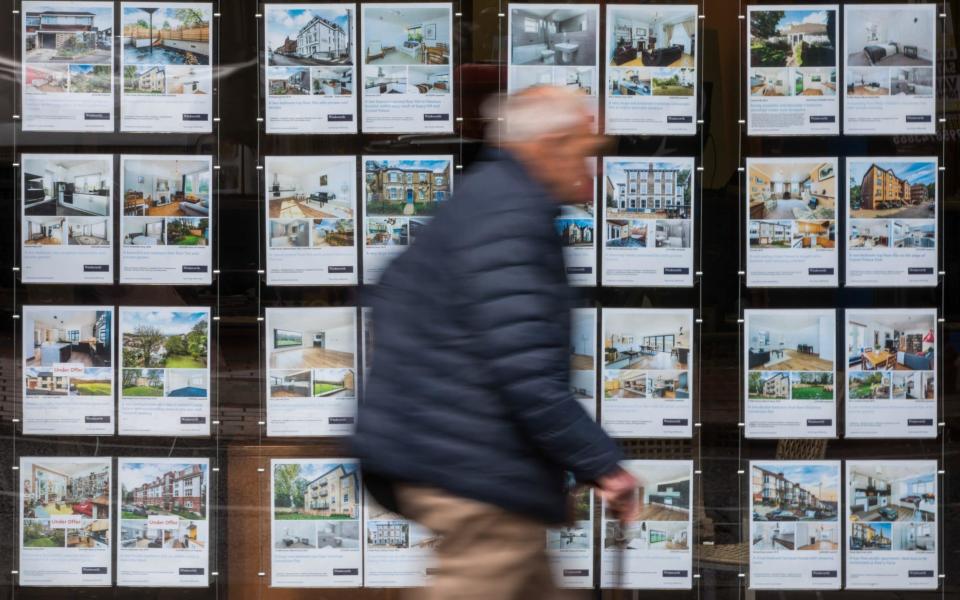Owning a home has never been more difficult – buyers spend nine times their salary

Buying a home has never been more difficult as the cost of a property has risen to nine times the average income.
A typical home in England cost 8.7 times the average annual disposable household income in the 2021-22 financial year, according to the Office for National Statistics.
This was the highest cost-to-earnings recorded since records began in 1999, and double the 4.4 rate recorded in 1999.
Experts warned conditions for buyers had deteriorated since the end of the tax year in April – meaning sales of homes are about to plunge and house prices are likely to fall.
House prices in England have risen by a further 12pc this financial year, to hit £302,000. Property price growth over this period has far outstripped wage increases, meaning the ratio is already far higher.
Andrew Wishart, of Capital Economics, an analyst, said: “The drop in transactions will be very dramatic, and we expect house prices to drop by 5pc.”
The outlook for first-time buyers has also become far worse because interest rates are now rising fast, Mr Wishart added.
For the majority of 2021, the Bank Rate was a record low of 0.1pc. The main reason why house prices were able to grow so quickly, despite comparatively slow wage growth, was that low interest rates meant mortgages were comparatively cheap.
But since December the Bank of England has made five consecutive decisions to raise the Bank Rate, which is now 1.25pc.
This is expected to rise again, either to 1.5pc or to 1.75pc, when the Bank makes its next decision in August. Mortgages will become even more expensive.
In 2020, the average first-time buyer had to spend 35pc of their income on their mortgage payments, according to Capital Economics. Because interest rates were so low, this was below the long-run average.
But as rates rise, Capital Economics expects average mortgage rates will rise from a low of 1.5pc to hit 3.6pc. “That means that in 2023 a first-time buyer will have to spend 47pc of their household income to cover their mortgage,” said Mr Wishart.
Existing homeowners will also face much higher costs when they want to move house or remortgage, he added.
The burden of higher interest rates will come just as inflation and tax rises hit real incomes and committed expenditure, meaning buyers will likely also be unable to take out larger mortgage loans. In Wales, the average home cost six times average disposable incomes, while in Scotland the ratio was 5.5.
If unemployment rises, inflation continues, and the Bank of England has to raise rates further, the hit to the housing market could be much bigger. “If the Bank Rate hit 5pc, there would be very similar levels of housing overvaluation as in 2007,” said Mr Wishart. At that time, house prices fell by 18pc.

 Yahoo Finance
Yahoo Finance 